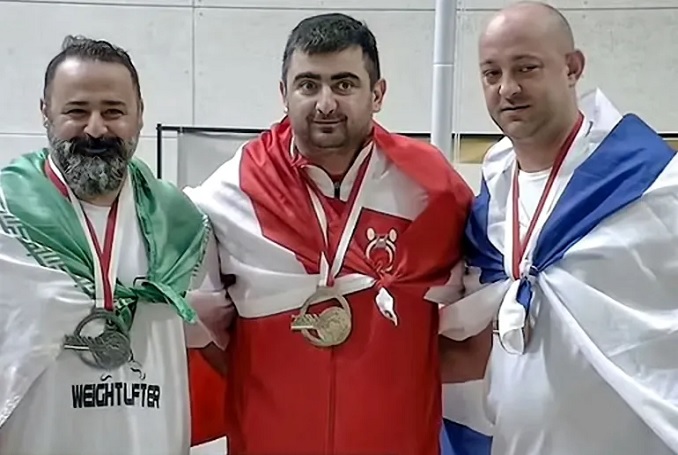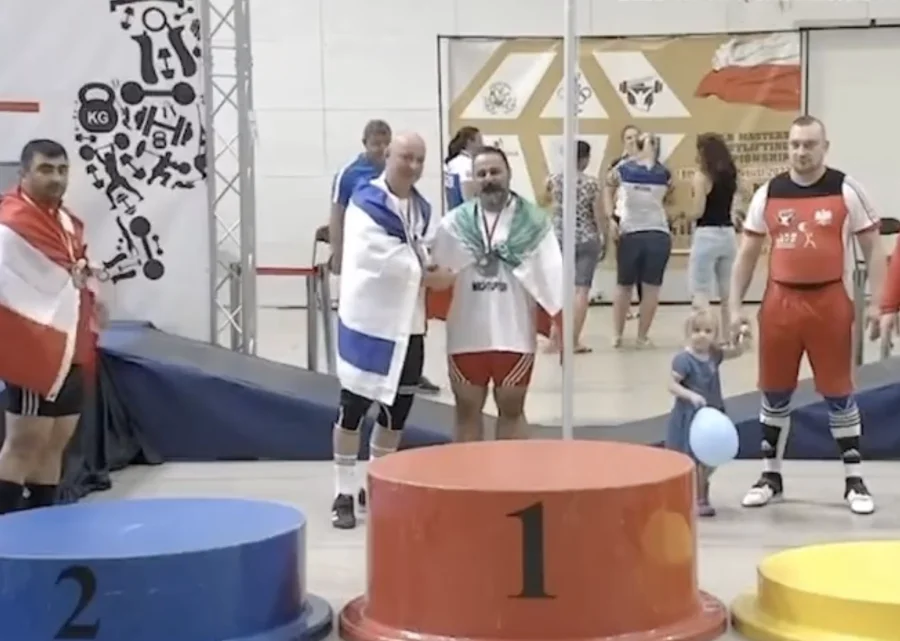In a recent turn of events at the World Masters Championship, an Iranian weightlifter’s career has taken a severe hit after he engaged in a seemingly innocuous interaction with an Israeli participant. Mostafa Rajai, who secured a commendable silver medal at the championship, has been slapped with a lifetime ban by Iran’s weightlifting federation for his actions. The incident sheds light on the ongoing tensions between Iran and Israel that extend even into the realm of sports.
Rajai’s infraction was nothing more than a brief conversation and a handshake with an Israeli bronze medalist on the winner’s podium. This interaction, captured in a photograph that quickly circulated, led to swift and severe consequences. Iran’s weightlifting governing body took the controversial step of permanently barring Rajai from accessing any sports facilities within the country.
The case highlights Iran’s strict stance against any form of direct engagement with Israeli competitors. This policy has forced Iranian athletes into often unconventional measures to avoid facing Israelis in competitions. Tactics such as deliberately underperforming or feigning injury have become unfortunate strategies for Iranian sportspeople aiming to circumvent such matchups.
The interaction between Rajai and the Israeli athlete, Maksim Svirsky, took place during a non-professional weightlifting competition held in Wieliczka, Poland. Rajai, draped in his nation’s flag, found himself inadvertently caught up in the geopolitical tensions that have long defined relations between Iran and Israel.

Rajai’s prior accomplishments as an athlete cannot be ignored. He had previously represented Iran in the 2015 Asian Weightlifting Championships held in Thailand and had been a valued member of the Iranian national team. However, his actions at the World Masters Championship were deemed to have “crossed the red lines of the Islamic republic,” according to the state news agency Irna.
The repercussions of Rajai’s actions extended beyond his personal ban. Hamid Salehinia, the head of the Iranian weightlifting team participating in the event, was also dismissed from his role in the aftermath of the incident. This emphasizes the severity with which Iran’s authorities view interactions with Israelis.
The incident echoes the sentiments expressed by Ayatollah Ali Khamenei, Iran’s supreme leader, in 2021. Khamenei had urged Iranian athletes to abstain from shaking hands with Israeli competitors, even if it meant sacrificing their chances of winning a medal. The ideology-driven approach to sportsmanship has further entrenched the divide between Iran and Israel.
The Rajai incident is not an isolated case. The strict policies have led some Iranian athletes to defect from the country in protest against the restrictions placed upon them. A notable example is chess prodigy Alireza Firouzja, who left Iran after being banned from the 2019 world championship due to concerns that he might be paired against an Israeli player.
The weightlifting world may have witnessed a remarkable display of sportsmanship between Rajai and Svirsky, but the geopolitical backdrop served as a reminder of the deeply rooted tensions between Iran and Israel. As athletes like Rajai face the consequences of their interactions, the broader conversation about the intersection of sports, politics, and national identity continues to evolve.




